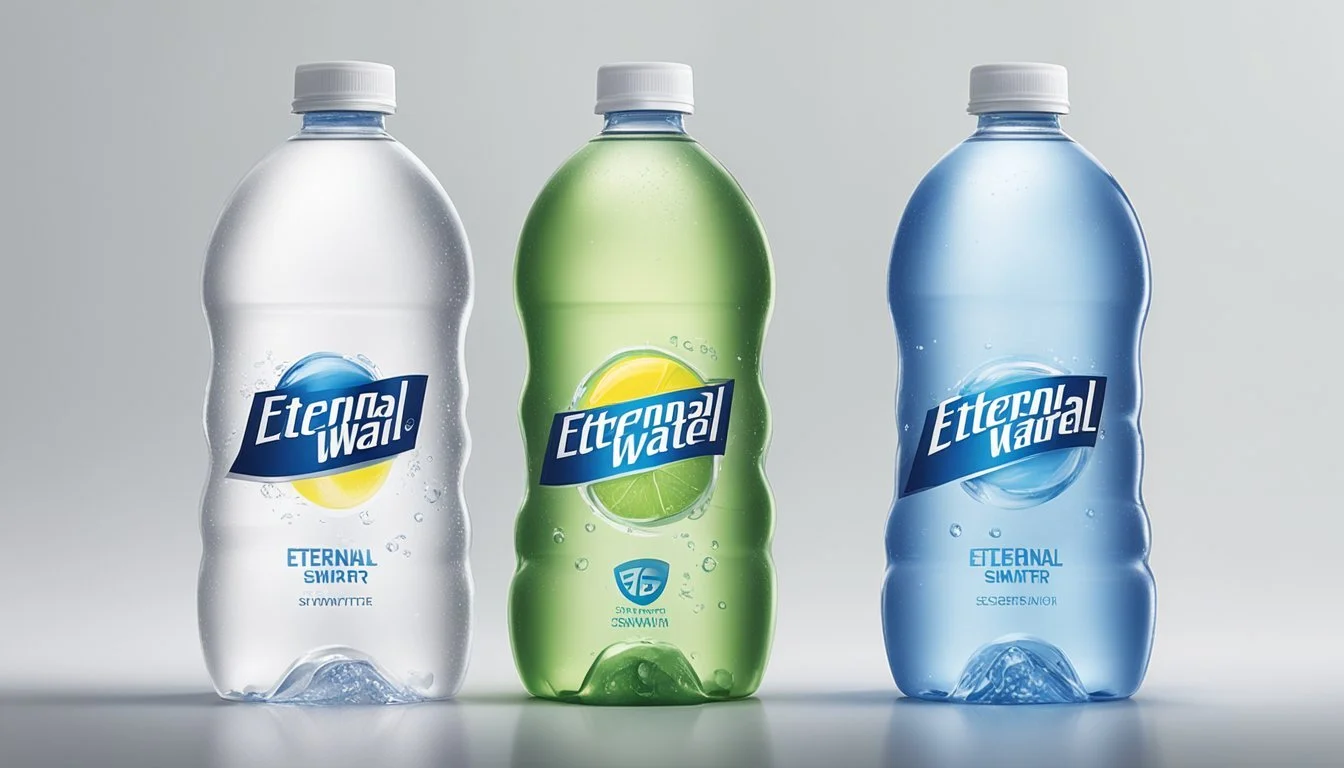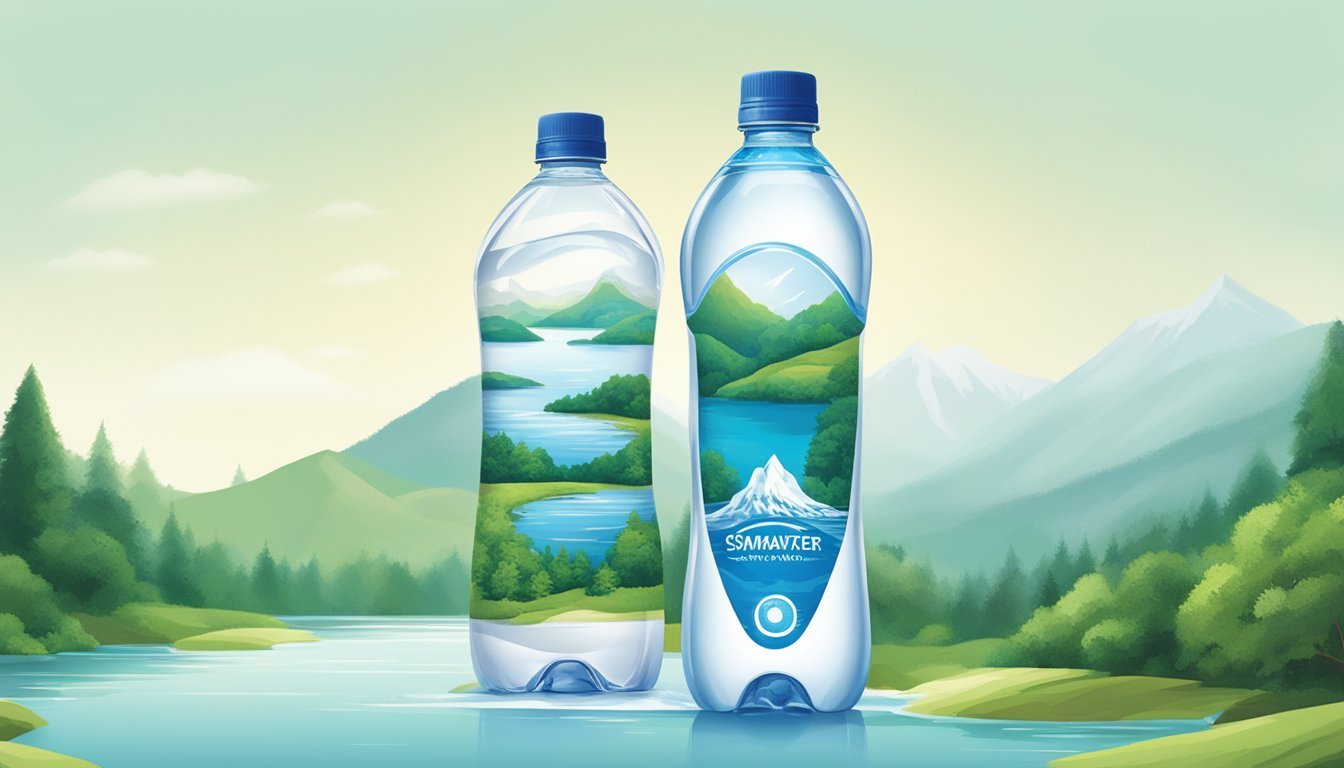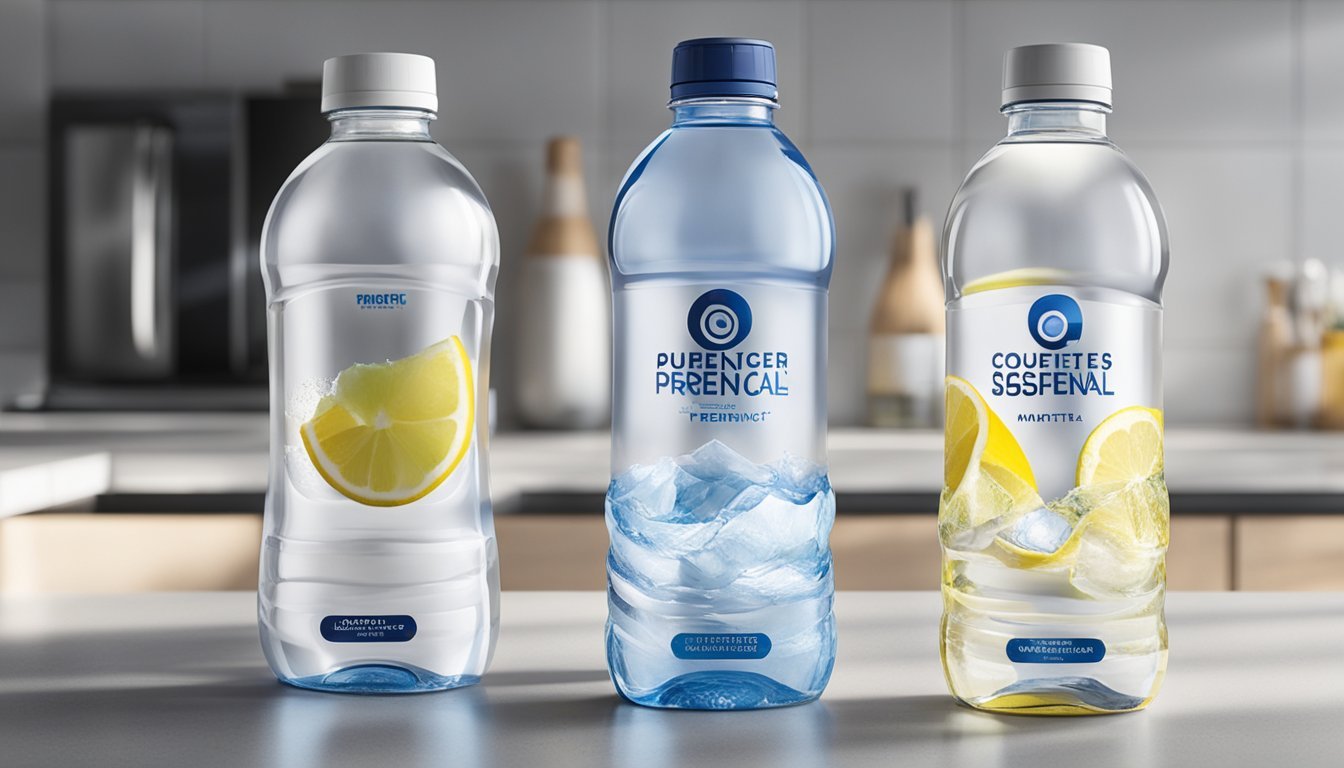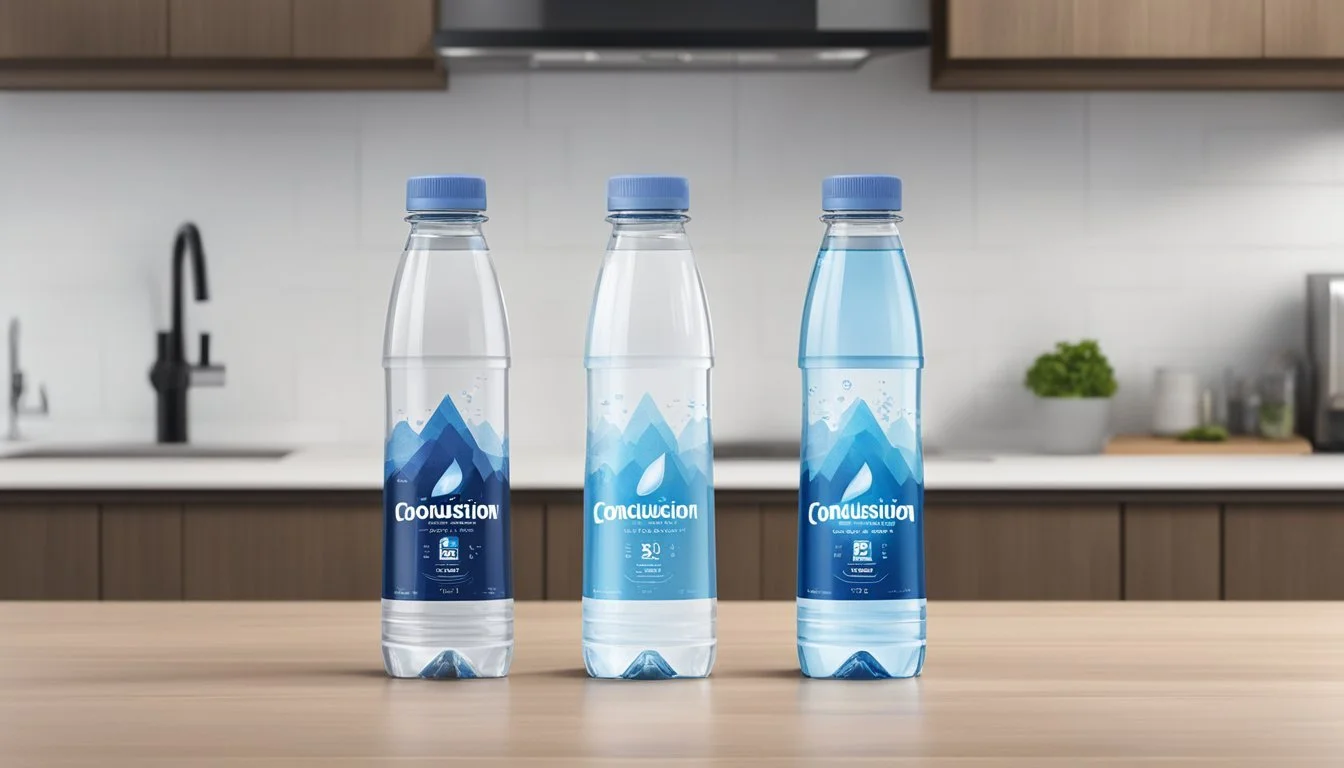Eternal vs. Smartwater
Comparing Bottled Water Brands for Quality and Taste
Bottled water has become a staple for individuals seeking convenience and perceived purity in their hydration choices. Among the multitude of brands, Eternal and Smartwater have emerged as notable contenders in the market. Eternal water sources its product from natural springs, promising a connection to untouched wilderness and the appeal of a mineral-rich composition. Smartwater, on the other hand, takes a more scientific approach by offering vapor-distilled water with added electrolytes, aiming for enhanced taste and hydration benefits.
Choosing between Eternal and Smartwater involves more than just personal preference; it includes a consideration of the processes and added benefits these brands claim to offer. While Eternal emphasizes its naturally occurring electrolytes and minerals due to its spring water source, Smartwater relies on its technological purification method and infusion of a select balance of electrolytes. Both brands have developed a dedicated consumer base and each touts its own approach to providing hydration that goes beyond simply quenching thirst.
The hydration offered by bottled water is essential for health and wellness, but the choice between brands like Eternal and Smartwater can depend on an individual's priorities—whether they value the natural characteristics and taste of spring water or the consistency and enhanced composition of scientifically purified water. This article will delve into the specifics of each brand, allowing readers to make an informed decision based on their hydration needs.
Understanding Bottled Water
Bottled water offers a convenient and often purified alternative to tap water, with various types sourced from springs or created through purification processes. Each type comes with its own set of properties and benefits, catering to differing consumer needs and preferences.
Defining Bottled Water
Bottled water is packaged drinking water available in various forms and processes. It ranges from spring water, emerging from an underground source, to purified water, which has been treated to remove chemicals and contaminants. Similarly, alkaline water has a higher pH level and often contains added electrolytes, while distilled water has been boiled and re-condensed, stripping it of minerals and impurities.
Sources of Bottled Water
The source of bottled water can significantly affect its taste, mineral content, and purity. Principal sources include:
Natural Springs: Spring water is collected directly from an underground source and may contain naturally occurring minerals.
Public Water Sources: Some bottled waters originate from municipally supplied water but are further treated for commercial sale.
Types of Bottled Water
Different types of bottled water are designed to meet specific consumer preferences and uses:
Spring Water: Usually contains natural minerals and is required to be collected at the source or through a borehole tapping the underground formation.
Purified Water: Involves methods such as reverse osmosis, distillation, or deionization, leading to high levels of purity, free from bacteria and dissolved solids.
Alkaline Water: Typically has a pH above 7 and is often infused with electrolytes for taste and potential hydrating benefits.
Distilled Water: Vaporized and condensed back to liquid form; it lacks many of the dissolved minerals found in spring and mineral water.
Each bottled water type may serve a specific consumer need, ranging from daily hydration to specific dietary preferences.
Comparing Eternal and Smartwater
In evaluating Eternal and Smartwater, it is essential to distinguish their individual branding approaches, the distinctive methods they employ to process their water, and the quality and sources of the water they offer.
Brand Overview
Eternal offers naturally alkaline water, which it markets as containing a blend of minerals and electrolytes. This water brand aims to deliver a product that not only hydrates but also contributes to the body's mineral balance.
On the other hand, Smartwater is a product of The Coca-Cola Company known for its vapor-distilled water. It includes added electrolytes for taste, marketing itself as a premium water option that provides purity and hydration.
Production Processes
Eternal utilizes a natural filtration process from mineral springs, which means the water is filtered through the earth and imbued with minerals naturally without the need for artificial purification.
Contrastingly, Smartwater undergoes a rigorous purification process that includes:
Vapor distillation: similar to the hydrologic cycle, where water is purified by being turned into vapor and then condensed back into water.
Ionized: Smartwater offers an alkaline option, which is ionized to achieve an alkaline pH, giving it a unique taste profile.
Water Source and Quality
The source of Eternal’s water is underground springs, which inherently possess a mixture of minerals. These springs are typically located in remote locations to ensure the water is protected from industrial pollutants and urban contaminants.
For Smartwater, the source is typically municipal water supplies. The quality of Smartwater is achieved through:
Reverse Osmosis (RO): to remove impurities and contaminants from the source water.
Hydro-7 filtration process: Smartwater's proprietary filtration method designed to remove more particles than standard filtration.
In terms of water quality, Eternal positions its product as having a superior, naturally-derived mineral content. Meanwhile, Smartwater emphasizes the purity of its product, focusing on the technological processes that ensure the water is free from impurities.
Nutritional Comparison
When evaluating bottled water brands such as Eternal and Smartwater, the nutritional comparison focuses on two critical aspects: mineral content and pH levels, along with alkalinity. These are fundamental in determining the potential health benefits associated with each brand.
Mineral Content
Eternal water is naturally sourced from springs and is known for its inherent mineral content. It typically contains calcium, magnesium, and potassium, minerals essential for body function. Smartwater, on the other hand, is vapor-distilled, and electrolytes like calcium chloride, magnesium chloride, and potassium bicarbonate are added for taste rather than nutritional value.
Calcium: Essential for bone health.
Magnesium: Supports muscle and nerve function.
Potassium: Crucial for heart and kidney health.
pH Levels and Alkalinity
The pH level indicates whether the water is acidic or alkaline. Eternal water often boasts a higher pH level, which means it is more alkaline. This can be beneficial for those looking to balance their body's pH due to an acidic diet. Smartwater has a pH that is typically close to neutral at 7, which is considered balanced and a safe choice for general consumption.
pH Level of Eternal: Typically above 7.5, indicating an alkaline nature.
pH Level of Smartwater: Approximately 7, indicating neutrality.
Alkaline water can sometimes contain higher levels of alkaline minerals like calcium, magnesium, and potassium, which contribute to its pH level, while some believe this can aid in neutralizing acid within the bloodstream.
Health and Safety Standards
When considering bottled water, health and safety standards are pivotal. These standards hinge on federal regulations and concerns surrounding the materials used in packaging.
FDA Regulations
The Food and Drug Administration (FDA) is tasked with regulating the safety of bottled water. Its standards are modeled on the Environmental Protection Agency (EPA) standards for tap water, ensuring that when these standards are adhered to, the water is deemed safe for most individuals. For bottled water brands such as Eternal and Smartwater, this means complying with specific criteria, including limits on contaminants such as chlorine and fluoride.
Contaminants: The FDA sets Maximum Contaminant Levels (MCLs) for substances in bottled water.
Chlorine: MCL set at 4 parts per million (ppm)
Fluoride: MCL varies depending on climate; max of 2.4 ppm in warmer areas
BPA and Plastic Concerns
The packaging of bottled water, usually plastic bottles, is a health concern to consider. Consumers are often wary of bisphenol A (BPA), a chemical found in some plastics.
BPA: Known to disrupt hormones, many manufacturers have switched to BPA-free plastics.
Eternal and Smartwater typically use BPA-free packaging.
Both have an obligation to ensure that their bottles do not leach contaminants into the water, maintaining the purity and safety of their product. While BPA-free bottles alleviate some concerns, consumers should still be informed about the environmental impact of single-use plastics.
Taste Profiles
In the realm of bottled water, taste is a paramount consideration that is influenced by mineral content and water source. This section precisely examines the taste profiles of Eternal and Smartwater.
Water Taste Factors
The taste of bottled water is shaped by several factors, with mineral content playing a primary role. Water with higher mineral content often has a more distinct taste due to minerals like calcium, magnesium, and potassium. These minerals can contribute to a water's perceived "fullness" or flavor profile.
Smartwater, for instance, is known for its purity and crisp taste, achieved through vapor distillation, a process similar to how clouds purify water. After condensation, electrolytes are added for taste, producing a clean and fresh flavor profile.
Eternal Water, supposedly originating from naturally protected sources, touts a natural blend of electrolytes and minerals. This natural filtration process means Eternal may carry a more complex, earthy flavor profile compared to Smartwater.
Taste Test Results
When conducting a taste test between Eternal and Smartwater, results can be diverse; however, key distinctions are apparent. Here is a simple breakdown of taste test observations for each brand:
Brand Source Taste Mineral Content Eternal Natural springs Slightly sweet, earthy Higher due to natural minerals Smartwater Vapor-distilled Clean, crisp, almost neutral Electrolytes added for taste
Testers often describe Eternal water as having a mild sweetness and a pleasant texture, possibly due to its higher natural mineral content. Smartwater, on the other hand, might be preferred by those who enjoy a lighter and crisper taste, with no strong mineral aftertaste.
Environmental Impact
When discussing the environmental impact of bottled water brands like Eternal and Smartwater, it's important to consider the bottling process and the subsequent effects of plastic waste.
Bottling Process
The production of bottled water requires significant resources, including the extraction and processing of raw materials. Smartwater is vapor-distilled, a process involving the heating of water to the point of evaporation, then condensing it back into liquid form. Eternal Water, being naturally alkaline, claims to source its water from underground springs, which is then bottled at the source. These processes, while ensuring purity and taste, can have a higher environmental toll compared to tap water. Manufacturing the plastic bottles to contain the water also consumes energy and resources.
Energy usage: Both brands' bottling processes involve machinery that runs on electricity or fossil fuels.
Resource extraction: The acquisition of raw materials for the bottles and the water itself can lead to habitat disruption.
Plastic Waste and Recycling
After consumption, the plastic bottles used by both Eternal and Smartwater can contribute significantly to environmental pollution if not disposed of properly. Recycling rates can vary, but a substantial amount of plastic waste still ends up in landfills or the natural environment, where it can take hundreds of years to degrade.
Recycling: Plastic bottles can be recycled, but the rate at which they are varies by region and consumer habits.
Biodegradation: Traditional plastic bottles do not biodegrade easily, posing long-term environmental risks.
Eternal and Smartwater are among the brands that use plastic in their packaging, impacting recycling efforts and the environment. Consumers and producers share the responsibility for mitigating these environmental impacts through conscientious production, usage, and recycling practices.
Market Presence
Eternal and Smartwater have distinctive market presences that reflect their branding strategies and the scope of their distribution networks. Consumers recognize these brands through their marketing efforts and the widespread accessibility of their products.
Branding and Visibility
Eternal Water prides itself on its source from natural springs and emphasizes its natural electrolytes and minerals in its branding. They use clean, minimalistic packaging that speaks to the purity of their product. Smartwater, on the other hand, has positioned itself with a tech-savvy image, stressing its vapor-distilled process and added electrolytes for taste. Their packaging is sleek and modern, with a noticeable vapor droplet design that captures attention.
Popularity in Retail and Online Platforms:
Eternal:
Not as ubiquitous as Smartwater.
Available on Amazon and select grocery stores.
Smartwater:
Highly visible in a broad range of outlets, including Starbucks, which adds to its popularity.
Dominates Amazon sales among premium bottled water brands.
Distribution and Availability
In terms of distribution, Smartwater has a more extensive network, ensuring it is widely available across the nation. As a product of The Coca-Cola Company, Smartwater benefits from an established distribution system that includes major grocery chains, convenience stores, and food service providers such as Starbucks.
Eternal Water, while popular among niche markets that prefer natural alkaline water, is less commonly found in everyday retail outlets. However, it maintains a strong presence in health food stores and on Amazon, where dedicated customers can obtain it easily. Its availability in common grocery stores is growing, but it lags behind Smartwater in market saturation.
Price Comparison
When purchasing bottled water, consumers often consider price as a major deciding factor. Eternal and Smartwater are two popular brands that, while providing different experiences, also come with distinct pricing structures.
Eternal typically markets itself as a naturally alkaline artesian water sourced from the Shasta-Trinity Alps. It is known for its essential minerals and electrolytes, presenting a more premium option in the bottled water market. The price of Eternal water may vary based on location and retailer, but it tends to be more expensive compared to conventional bottled water brands due to its natural mineral content and source.
Smartwater, on the other hand, is vapor-distilled with added electrolytes for taste. As a product of The Coca-Cola Company, Smartwater has extensive distribution, allowing it to be somewhat more affordable relative to premium brands. It is marketed to consumers who value purity and added electrolytes without necessarily seeking natural alkalinity.
Here is a basic comparison of their price ranges found commonly at retail:
Brand Size Average Retail Price Eternal 1 Liter $2.00 - $2.50 Smartwater 1 Liter $1.50 - $2.00
The cost for each brand can fluctuate due to factors such as sales, locations, or packaging differences (such as single bottles versus multi-packs). It should be noted that prices are subject to change and can be impacted by regional availability, which may influence purchasing choices for consumers.
Consumer Preferences
When it comes to bottled water, consumer preferences play a pivotal role in the success of brands like Eternal and Smartwater. These preferences often hinge on factors such as public perception and purchase decisions, which are influenced by notions of quality, taste, and value.
Public Perception
The public often views Eternal as a high-quality water because of its natural alkaline sources. Consumers may infer that natural alkalinity equates to a better taste and potential health benefits. On the other hand, Smartwater is perceived as a sophisticated and technologically enhanced product, primarily because of its electrolyte-enhanced profile and the process of vapor distillation it undergoes. The brand's clean, crisp taste often secures its position as one of the most recognized and preferred bottled waters.
Purchase Decisions
When making purchase decisions, individuals typically consider two main factors: taste and cost.
Taste:
Eternal: Tends to have a loyal customer base that favors the natural and crisp taste derived from its spring sources.
Smartwater: Fans of Smartwater enjoy the added electrolytes, which they believe offer a distinct and refreshing flavor.
Cost:
Eternal: May be perceived as offering better value to those who prioritize natural alkalinity, despite sometimes having a higher price point.
Smartwater: Often appeals to cost-conscious consumers who still want a taste of premium water, as it's generally more affordable than some other high-end brands.
The choices consumers make are often based on the balance they seek between a satisfying taste and reasonable pricing, with each of these brands catering to different aspects of these desires.
Alternatives to Bottled Water
Consumers seeking alternatives to bottled water like Eternal and Smartwater have viable options in tap water and filtered water systems which cater to both cost and environmental concerns.
Tap Water Comparison
Tap water, regulated by environmental agencies like the EPA in the United States, is the most accessible alternative. It comes directly from municipal water supplies and its quality is periodically tested for contaminants to ensure safety. The cost of tap water is significantly less compared to bottled water. Additionally, the carbon footprint associated with the distribution of bottled water is far greater than that of tap water, making it a more environmentally favorable option.
Most tap water contains a blend of minerals, and its taste can vary by location due to these mineral contents and the presence of residual disinfectants used in the water treatment process. While the presence of contaminants like lead has raised concerns, these are often the result of aging infrastructure such as old pipes, rather than the source water itself.
Filtered Water Systems
Filtered water systems offer an enhancement over standard tap water by improving taste and purity. They come in various forms, ranging from simple pitchers with carbon filters to more complex under-sink or whole-house systems.
Pitcher Filters: Use activated carbon to reduce contaminants and improve taste.
Under-Sink Filters: Often utilize multi-stage filtration, including reverse osmosis, which can remove up to 99% of dissolved salts (ions), particles, colloids, organics, bacteria, and pyrogens from the feed water.
Whole-House Filters: These systems filter water for the entire house and are typically installed at the point of entry. They can provide purified water for drinking, cooking, and even bathing.
Reverse osmosis systems are particularly effective, leveraging a semi-permeable membrane that allows only water molecules to pass through, removing dissolved ions and other impurities. However, they require more maintenance and a greater initial investment compared to simpler carbon filter options. Despite this, they are a cost-effective long-term solution for those seeking the highest quality water.
For individuals concerned about the impact of bottled water on the environment and cost, tap water and filtered water systems provide efficient solutions. They empower consumers with control over their water quality and offer a proactive approach to reducing plastic waste.
Conclusion
Choosing between Eternal and Smartwater depends on individual preferences and priorities. Eternal water is sourced from natural springs, providing a unique mineral profile and natural alkalinity. This can appeal to consumers seeking water with a natural origin and minimal processing.
Smartwater, on the other hand, is vapor-distilled with added electrolytes for taste. It's designed to offer a pure and crisp flavor, making it a favorite for those who prioritize taste and enhanced hydration, often desired by the health-conscious populace who may be looking for an alternative to sugary beverages.
Feature Eternal Water Smartwater Source Natural springs Vapor-distilled Taste Natural, untouched Enhanced with electrolytes Alkalinity Naturally alkaline Neutral Price Varies Varies Environmental Impact Depends on bottling and transportation Depends on bottling and transportation
Consumers are encouraged to consider environmental implications, as bottled water has a significant environmental footprint due to packaging and transportation. Both brands offer distinct qualities, and the decision should align with personal hydration needs, taste preferences, and environmental consciousness.







